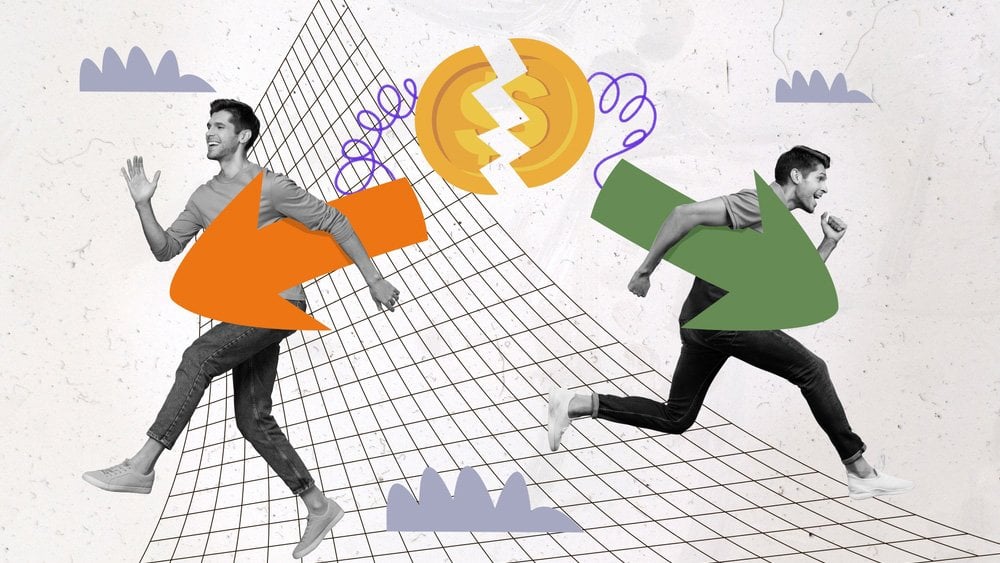Every week we spotlight techonomic happenings on the Web and beyond, picking people, companies, and trends that exemplify tech’s ever-growing role in business and society. Here’s what’s got our attention.
1. Slowdown in High-Tech Startups May Hurt the Economy

A new report from entrepreneurship advocacy organization the Kauffman Foundation indicates the number high-tech startups—defined as young companies with a high proportion of STEM workers—has been in decline since 2000. The study concludes that the slowdown in tech entrepreneurship “might have disproportionate effects on long-term economic growth,” noting that while tech startups often fail, they help to sustain a vigorous rate of net new job creation. With the recent $19 billion sale of WhatsApp, there’s been increasing speculation that we’re in another tech bubble. But this Kauffman report suggests that for the sake of the overall economy, tech entrepreneurs should get off the sidelines and jump into the fray.
2. Bloomberg Stakes Innovation Contest for European Cities
More than 150 European cities are duking it out in an innovations contest, competing to find the best high-tech solutions to common urban challenges like unemployment and energy use. The contest is an initiative of former New York City Mayor Michael Bloomberg, the billionaire entrepreneur whose philanthropic efforts gifted $452 million to innovation projects last year alone. The winner of Bloomberg’s latest contest, which targeted European cities with 100,000 or more residents, will be awarded a grand prize of 5 million euro. Four runners up will each receive 1 million euro.
 3. Could Doctors Use Gaming to Treat ADHD?
3. Could Doctors Use Gaming to Treat ADHD?
Feeling guilty for playing too much Candy Crush or Dots? Wouldn’t you love to have an excuse to play these addictive games, one that says they’re actually good for you? Well, research from the University of California-San Francisco is discovering they just might be—and it’s pointing to a future where doctors could prescribe addictive gameplay to treat conditions like depression or ADHD, or to combat failing memory. Researchers say the first step is to locate the point of addiction, and from there, they can develop games that hold people at their addiction point as they train their brains, playing their way to fitter, faster minds.
4. The Tinder Olympics
We’ve all heard horror stories of Tinder matches gone wrong—from wildly misrepresented appearances (hey, guy, don’t you think she’s going to notice your picture is from 20 pounds and five years ago?) to encounters so awkward they’d rival any Wes Anderson scene (hey, girl, do you really think prattling on about your last seven boyfriends is the smartest way to go?). But imagine Tindering in a village of impossibly fit, beautiful people who are the best at what they do and feeling randy to boot? Some might call that heaven (and others hell), but 2014’s Olympians called it Sochi. The popular matchmaking app, named the best new startup of 2013 at the Crunchie Awards, heated things up at the Winter Olympic Games, with many of the world’s top athletes swiping their way from the slopes to the sack. As U.S. skier Gus Kenworthy told Today, “I guess it was the first thing people did when we got to the village—we checked Tinder.”
5. Can Steve Perlman’s Personal Wireless Transmitter Replace LTE?

Entrepreneur and inventor Steve Perlman is on a mission to alleviate wireless network congestion. After nearly three years of development, Perlman unveiled his personal cell technology system Tuesday, billing it as a successor to LTE and declaring that it “will shock people.” Known as pCell or personal cell technology, Perlman’s wireless innovation works with existing devices that support LTE, creating a unique, unshared signal that allows a user to access the full capacity of the transmitter. Perlman plans to partner with a company like Google or Microsoft to provide commercial service by the end of the year, first in San Francisco, then in other congested cities around the U.S., including New York, Chicago, and Dallas.
Techonomic Top 5: Startup Slowdown, Euro Urban Innovation, Prescribing Addictive Games, and More
Every week we spotlight techonomic happenings on the Web and beyond, picking people, companies, and trends that exemplify tech’s ever-growing role in business and society. Here’s what’s got our attention. A new report from entrepreneurship advocacy organization the Kauffman Foundation indicates the number high-tech startups—defined as young companies with a high proportion of STEM workers—has been in decline since 2000. The study concludes that the slowdown in tech entrepreneurship “might have disproportionate effects on long-term economic growth,” noting that while tech startups often fail, they help to sustain a vigorous rate of net new job creation.














